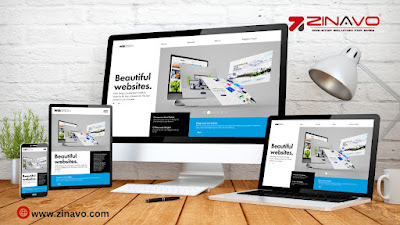How to Evaluate eCommerce Platforms for Your Online Store?
Introduction:
Choosing the right eCommerce platform is essential when launching or scaling your online store. It's not just about how your website looks, but also how it works how secure it is and how well it supports your business plan.
When you have dozens of eCommerce platforms to choose from you may find it difficult to choose the best one. Our blog will guide you through the key factors to consider when evaluating eCommerce platforms so you can make an informed decision that supports your long-term goals and growth.
Take a step back and assess your business requirements before looking into platform features. It is important to consider the problems you are trying to solve as well as your goals. When you identify your needs your decision making process will be guided and your platforms will align with your strategic goals. Think about:
Your type of products (physical, digital, subscription)
The volume of sales or traffic you expect
It may have a local, national, or international audience, depending on its audience
Find out whether your business requires B2B or B2C capabilities
Expertise or technical skill level of your team
To determine which platform is most suitable for your business, you should ask yourself. For example a small startup may not need the functionality of an enterprise solution like WordPress but may succeed on Amazon Products or WordPress e-commerce platform.
2. Ease of use.
A user-friendly interface is essential, particularly for non-technical individuals. Good eCommerce platforms should have a user-friendly dashboard, drag-and-drop functionality, and easy management of content and products.
Shopify and Amazon are popular because of their simple ways of use, but Magento or eCommerce solutions require more technical expertise but provide greater flexibility.
Choosing a platform that allows you to upload products easily, track orders, manage products and customize templates with a minimum of coding is an excellent idea.
3. Scalability and performance
eCommerce platforms should scale with your business. A site should be able to handle increased traffic more products and updated features without affecting performance.Consider the following:
Users can access the platform concurrently in a large number
It provides features for optimizing performance
Costs associated with scaling up
High-traffic stores can benefit from scalable platforms such as Shopify Plus, BigCommerce Enterprise or Magento Commerce.
4. Customization and Flexibility
Your platform should allow you to customize it according to your brand and customer experience, keeping in mind that every online store is unique.Evaluate:
Templates and themes can be customized
Some cases may require modifying the code
The number of plugins, extensions or services is inadequate
A developer may benefit from open source platforms, such as the WordPress platform or Magento, while a hosted platform such as WordPress or Squarespace may be limited.
5. SEO and Marketing Features
It is essential that an online store be visible to be successful. If you would like to increase conversions and drive organic traffic to your eCommerce website, you should invest in an eCommerce platform that supports SEO and marketing. Check for these things:
SEO-friendly URLs, meta tags and sitemaps
Email marketing and customer relationship management integration
Built-in blog and content management system
Social media sharing and promotions
The SEO features of platforms like WordPress and Shopify are well known.
6. Security features
Security is an absolute requirement for eCommerce. Your platforms must conform to industry standards to protect customer data and payment details. Check for:
SSL certificate
PCI compliance
Secure payment gateway integration
Regular platform updates and security patches
Platforms with built-in security features reduce data security risk and build customer trust.
7. Payment Gateway Integration
Each platform has its own payment options. You should choose one that works well with your preferred payment providers, such as:
PayPal
Stripe
Razor Pay
Apple Pay / Google Pay
UPI (for Indian audiences)
Also, it is essential to consider transaction fees, the ease of setting up and support for multiple currencies.
8. Mobile responsiveness
A significant portion of online shopping happens on smartphones and other devices. Make sure your platform offers mobile-optimized themes and smooth mobile user experiences.Look for:
Mobile-first design templates
Responsive product pages
Fast load times on mobile
Being mobile-friendly with your website is crucial for visibility and sales as Google prioritizes mobile-friendly websites in its search rankings.
9. Customer Support and Community
In particular when you're just starting out reliable support can be invaluable. Choose a platform that provides:
24/7 customer support
Live chat or phone assistance
Extensive documentation
Active developer and user communities
A quick support team and a large community make it easy to resolve issues quickly and implement best practices.
10. Pricing and Total Cost of Ownership
An eCommerce platform's cost is one of the most important factors to consider. Don’t just look at the initial costs. Consider the long-term costs including:
Subscription fees or licensing fees
Payment gateway charges
Plugin/add-on costs
Hosting and domain fees (for self-hosted platforms)
Developer costs for customization
Compare different platforms to find one that fits your budget while offering the features you need.
Conclusion:
The choice of an eCommerce platform is only the beginning. The most efficient way to grow a successful online store is to partner with an expert development team. This understands your business goals and helps you build a powerful high-converting store.
Zinavo specializes in ECommerce web development, platform migrations and custom integrations for businesses of all sizes. Our team has helped over 5000 clients globally choose and implement the right eCommerce platform customized to their needs with over 13 years of experience. We guide you through the entire eCommerce process from strategy to launch.
For More Information:-
Call: +91 8035694395
Whatsapp us: +91-7760245945
Mail: info@zinavo.com
Website: www.zinavo.com




Comments
Post a Comment